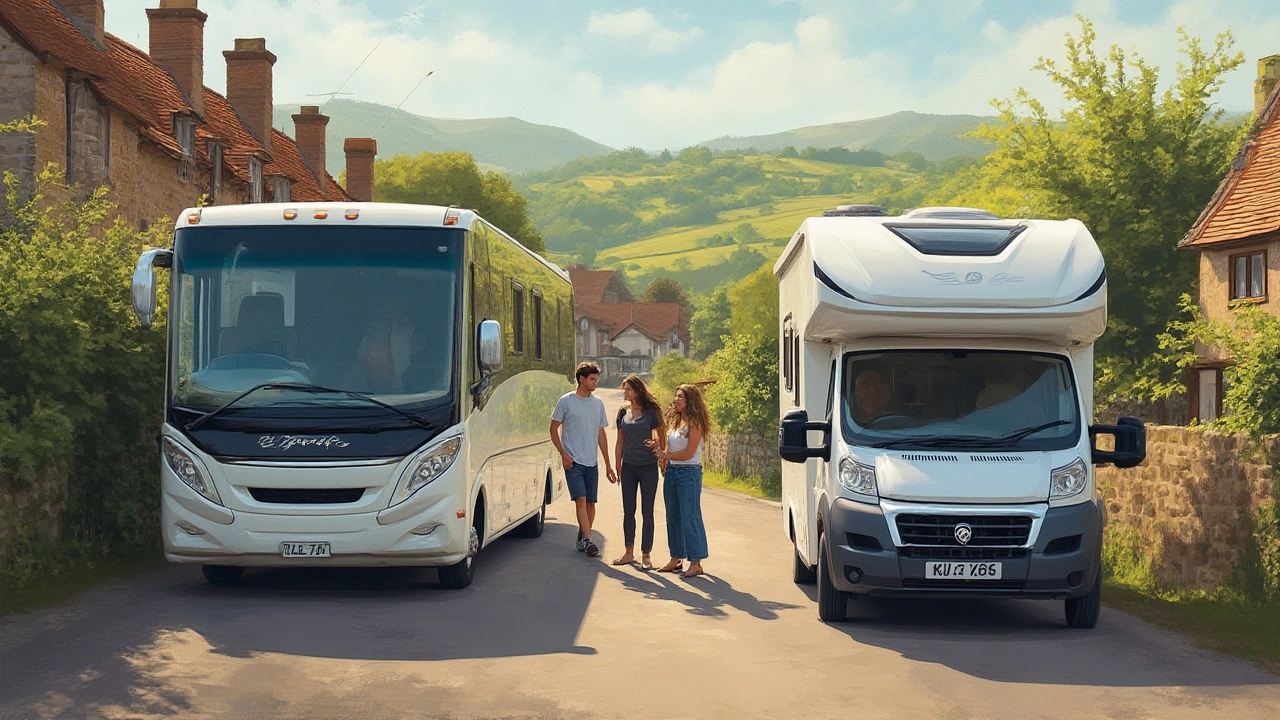RV Comparison: Hire vs Buy, Camper vs Motorhome – What’s Best for You?
Thinking about a road trip across the UK? The first question is whether to hire a motorhome or buy an RV. Both options have pros and cons, and the choice depends on budget, travel style, and how often you hit the road.
Let’s break down the main factors you should look at. We’ll cover cost, flexibility, maintenance, and the type of vehicle that matches your needs. By the end you’ll have a clear picture of which route saves you money and gives you the freedom you want.
Buying an RV: What to Watch Out For
Buying an RV is a big investment. The price can range from a few thousand pounds for a used camper van to over £100,000 for a luxury motorhome. The first thing to do is set a realistic budget – include insurance, road tax, and storage fees.
Next, think about the size you need. A compact van is easy to drive in narrow UK towns, but a larger motorhome offers more sleeping space and a full kitchen. Test drive a few models to see what feels comfortable.
Don’t ignore hidden costs. Maintenance can add up fast, especially if you travel often. Check the service history, ask about warranty coverage, and see how easy it is to find parts for the make you’re considering.
Finally, consider depreciation. RVs lose value over time, so if you plan to sell later, choose a model that holds its price well. Look at resale trends on sites like AutoTrader or local classifieds.
Hiring a Motorhome: When It Makes Sense
Hiring is great if you only need a motorhome a few times a year. Rental companies bundle insurance, roadside assistance, and sometimes even bedding. That means fewer worries about repairs or storage when you’re not on the road.Rental rates vary by season. Off‑peak weeks can cost as little as £40‑£60 per night, while summer weekends may hit £120 or more. Compare several providers to find the best deal – don’t forget to ask about mileage limits.
Flexibility is a huge advantage. You can pick a different vehicle each trip, matching the size to your itinerary. Want a compact van for a city break one weekend and a full‑size motorhome for a coastal tour the next? Hiring lets you switch without a long‑term commitment.
One downside is the recurring cost. If you end up traveling many months a year, buying might become cheaper. Do a simple break‑even calculation: total rental cost versus purchase price plus upkeep over the same period.
Also, check the rental company’s policies on pets, extra drivers, and cleaning fees. Some firms charge a cleaning surcharge if you leave the interior messy, so plan to tidy up before returning.
In short, if you’re an occasional explorer, hiring gives you peace of mind and low upfront expense. If you’re a full‑time wanderer, buying could save cash in the long run but requires more responsibility.
Whichever path you choose, remember that the right RV should fit your travel style, not the other way around. Take the time to list your must‑haves – sleeping capacity, kitchen setup, bathroom facilities – and match those against the options on the market. That way you’ll enjoy every mile on the road without regret.
Ready to decide? Start by browsing the rental listings on our site and checking out a few used RVs in local classifieds. Compare prices, read reviews, and talk to other travelers. When you have the facts, the choice becomes a lot clearer.
Class A vs Class C Motorhome: Choosing the Best RV for Your Adventures
Get the real scoop on Class A vs Class C motorhomes. Compare size, comfort, costs, and travel routines so you can find your perfect home-on-wheels.
